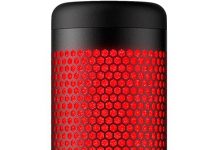When it comes to custom building a gaming desktop PC, determining which components to prioritize can be a daunting task. With so many options available in the market, making informed decisions is essential to ensure optimal performance and an immersive gaming experience. In this article, we will explore the key components that you should consider focusing on when designing your dream gaming rig.
From the processor and graphics card to memory and storage, we’ll provide valuable insights to help you make the right choices for your gaming needs. When custom building a gaming desktop PC, there are several components that you should prioritize.
These components include the CPU (central processing unit), graphics card, RAM (random access memory), storage, motherboard, power supply, cooling system, case, peripherals, and the operating system.
Each of these components plays a crucial role in the performance and functionality of your gaming desktop PC, so it’s essential to understand their features and considerations when making your choices.
This article will explore each of these components in detail and help you make informed decisions for your custom gaming PC build.
Review contents
CPU
The CPU is often referred to as the computer’s brain, as it drives the overall performance and efficiency of the system. When choosing a CPU for your gaming PC, you should consider the number of cores, clock speed, cache, and thermal design power (TDP).
The number of cores in a CPU determines the number of tasks it can handle simultaneously. It is recommended to have at least a quad-core CPU for gaming to handle the demanding requirements of modern games. However, if your budget allows, opting for a CPU with more cores can future-proof your system and improve its multitasking capabilities.
Clock speed, measured in GHz, indicates how many CPU instructions can be processed per second. A higher clock speed generally translates to better performance, but balancing it with other factors like power consumption and heat generation is essential.
The cache is a small amount of high-speed memory located on the CPU, storing frequently used data. A larger cache can improve gaming performance, particularly when running games with large texture files or complex simulations.
Thermal Design Power (TDP) measures the heat the CPU generates when running at its maximum capacity. Choosing a CPU with a TDP so that your chosen cooling system can adequately cool is essential. Otherwise, your CPU may overheat, leading to performance issues or even hardware damage.
Graphics Card
The graphics card, often called a GPU (graphics processing unit), is responsible for rendering the visuals in games. When selecting a graphics card for your gaming PC, you should consider its model, memory, clock speed, and power requirement.
The GPU model determines the processing power and capabilities of the graphics card. Choosing a GPU that meets the system requirements of the games you plan to play is essential. High-end GPUs are recommended for running modern games on high settings and resolutions.
Memory, or VRAM (video random access memory), stores data related to graphics processing. More VRAM allows for smoother gameplay and better visual effects, particularly in games with high-resolution textures or complex 3D environments.
Clock speed, similar to the CPU, determines the number of operations the GPU can perform in a given time. A higher clock speed can improve gaming performance, but it should also be considered with other factors like the GPU’s architecture and memory bandwidth.
Power requirement indicates the amount of power the graphics card needs to operate. It’s crucial to ensure that your power supply unit can provide sufficient power to all the components in your system, including the graphics card, to prevent any stability issues or performance bottlenecks.
This image is the property of cdn.vox-cdn.com.
RAM
RAM, or random access memory, is a crucial component for gaming as it temporarily stores data that the CPU needs to access quickly. When choosing RAM for your gaming PC, you should consider its capacity, type, speed, and the number of modules.
Capacity refers to the amount of RAM available for storing data. It is generally recommended to have a minimum of 8GB of RAM for gaming. However, 16GB or more is becoming increasingly common for optimal performance, especially in games requiring more extensive memory.
The type of RAM is an essential consideration, as different CPU and motherboard combinations support different types. DDR4 RAM is the current standard and offers faster speeds and better power efficiency than its predecessor, DDR3.
The speed of RAM, measured in MHz, determines how quickly data can be accessed and transferred. Higher RAM speeds can improve gaming performance, particularly in CPU-bound scenarios where the CPU heavily relies on accessing data from RAM.
The number of modules refers to the physical sticks of RAM. While using a pair of identical RAM modules for optimal performance is generally recommended, additional modules can be added to increase capacity.
Storage
Storage is where all your games, operating systems, and files reside. When choosing storage for your gaming PC, you should consider the choice between SSD (solid-state drive) and HDD (hard disk drive), capacity, form factor, and read/write speeds.
SSDs offer faster boot times, quicker game load times, and improved responsiveness compared to HDDs. They do, however, tend to be more expensive per gigabyte. On the other hand, HDDs provide larger storage capacities at a lower cost but sacrifice speed.
Capacity refers to the amount of data stored on the drive. Gaming PCs typically require significant storage, as games and their updates can be pretty significant. It is recommended to have a combination of an SSD for the operating system and frequently played games, along with an HDD for additional storage capacity.
The form factor refers to the physical size and interface of the storage drive. Typical form factors include 2.5-inch and M.2 for SSDs and 3.5-inch for HDDs. It’s essential to ensure your chosen drive is compatible with your motherboard’s available slots and connectors.
Read and write speeds indicate how quickly data can be accessed and written to the storage drive. Higher speeds result in faster game load times and smoother performance, mainly when dealing with large game files or open-world environments.
This image is the property of www.cgdirector.com.
Motherboard
The motherboard is the main circuit board that connects all the components of your gaming PC. When choosing a motherboard, you should consider its socket compatibility, form factor, expansion slots, and the number of USB ports.
Socket compatibility is crucial when choosing a motherboard, as it determines which CPUs can be installed on it. Different CPUs use socket types, such as Intel’s LGA or AMD’s AM4. It’s essential to ensure that your chosen motherboard is compatible with your selected CPU.
The form factor refers to the physical size and layout of the motherboard. Typical form factors include ATX, Micro-ATX, and Mini-ITX. The choice of form factor will determine the overall size of your gaming PC and the number of expansion slots and connectors available.
Expansion slots are essential for adding additional components to your system, such as dedicated sound cards, network cards, or additional graphics cards for multi-GPU setups. The number and type of expansion slots should align with your intended usage and future upgrade plans.
The number of USB ports determines how many external devices, such as gaming peripherals or external storage, can be connected to your gaming PC. It’s essential to choose a motherboard with an adequate number of USB ports to meet your connectivity needs.
Power Supply
The power supply unit (PSU) is responsible for providing electrical power to all the components in your gaming PC. When choosing a power supply, you should consider its wattage, efficiency rating, modularity, and cable management.
Wattage indicates the maximum electrical power that the PSU can deliver. It’s crucial to choose a power supply with sufficient wattage to support all the components in your system, including the CPU, GPU, and other peripherals. Overloading a PSU can lead to stability issues or damage to the components.
Efficiency rating refers to how efficiently the PSU converts AC power from the wall outlet to DC power for your components. Higher efficiency ratings, such as 80 Plus Bronze, Silver, Gold, or Platinum, result in lower power consumption and reduced heat generation.
Modularity allows you to customize the cables connected to the PSU, reducing cable clutter and improving airflow within the case. Fully modular PSUs offer the highest degree of customization, while semi-modular PSUs provide flexibility for essential components.
Cable management is crucial for maintaining your gaming PC’s clean and organized interior. It ensures proper airflow and prevents cables from interfering with other components or obstructing access during future upgrades or maintenance.
This image is the property of www.pcbuildadvisor.com.
Cooling
Adequate cooling is essential for maintaining your gaming PC’s optimal performance and longevity. When considering cooling options for your gaming PC, you should evaluate the CPU cooler, case fans, liquid cooling solutions, and airflow optimization.
The CPU cooler is responsible for dissipating heat generated by the CPU. It can be either an air cooler or a liquid cooler. Air coolers use heatsinks and fans to passively transfer heat away from the CPU, while liquid coolers use a closed-loop system with a radiator, pump, and water block for efficient heat removal.
Case fans are essential for providing airflow within the case to cool the other components, such as the graphics card and motherboard. Proper placement and configuration of the case fans can significantly impact the overall thermal performance of your gaming PC.
Liquid cooling solutions, such as all-in-one (AIO) liquid coolers, offer more efficient heat dissipation than air coolers. They are particularly suitable for high-performance CPUs or when overclocking. However, liquid cooling requires careful installation and maintenance to prevent leaks or system damage.
Airflow optimization involves strategically placing fans throughout the case to ensure proper intake and exhaust of cool air. This can be achieved through proper cable management, removing obstructions, and positioning fans to direct airflow where needed.
Case
The case houses and protects all the internal components of your gaming PC. When selecting a case, consider its size, airflow capabilities, toolless installation features, and cable management options.
The case size determines how many components it can accommodate and whether it fits your intended setup space. Standard sizes include Mid-Tower and Full-Tower. It’s essential to ensure that your chosen case has enough space for your selected components and allows for future expansions or upgrades.
Airflow capabilities refer to the case’s ability to provide sufficient cooling airflow throughout the system. Look for cases with ample fan mounts, dust filters, and proper ventilation to maintain optimal temperatures for your components, especially during extended gaming sessions.
Toolless installation features make the assembly and maintenance of your gaming PC easier. Look for cases with toolless drive bays, cable management systems, and easy access to internals. These features can significantly streamline the building and upgrading process.
Cable management is crucial for maintaining a clean and organized interior and ensuring proper airflow. Look for cases with space behind the motherboard tray, routing holes, and cable tie-down points. Effective cable management not only improves aesthetics but also facilitates better cooling and ease of maintenance.
This image is a property of kryptonite. In.
Peripherals
In addition to the core components of your gaming PC, peripherals play a crucial role in enhancing your gaming experience. When selecting peripherals, it would be best to consider the monitor, keyboard, mouse, and headset.
The monitor is the primary visual output device, and its features can significantly impact your gaming experience. Consider screen size, resolution, refresh rate, response time, and panel type. Larger screens, higher resolutions, and faster refresh rates offer more immersive and smoother gaming experiences.
The keyboard is an essential input device for gaming. Look for keyboards with features like mechanical switches for tactile feedback and faster response times, customizable backlighting for better visibility in darker environments, and programmable macro keys for quick in-game actions.
The mouse is another critical input device that directly affects your gaming performance. Opt for mice with high DPI (dots per inch) settings, adjustable weight and sensitivity, programmable buttons for customizable shortcuts, and ergonomic designs for comfortable and precise control.
The headset is vital in providing immersive audio and clear communication during gaming. Look for headsets with high-quality sound drivers, noise-canceling or directional microphones, comfortable ear cups for extended gaming sessions, and compatibility with your chosen gaming platform.
Operating System
The operating system (OS) is the software that manages and controls the operation of your gaming PC. When choosing an OS for your gaming needs, consider Windows, Linux, and MacOS and their compatibility with games.
Windows is the most popular choice for gaming due to its extensive library of games and broad hardware and software compatibility. It offers excellent DirectX support, crucial for optimal gaming performance in many modern titles. Windows also provides easy access to various gaming platforms like Steam, Epic Games Store, and Microsoft Store.
Linux is an open-source operating system with a growing presence in gaming. While it offers robust performance and stability, game compatibility can be limited compared to Windows. However, with the support of Proton, WINE, and Steam’s Proton compatibility layer, Linux has become a viable option for certain games.
MacOS is the operating system exclusive to Apple’s Mac computers. While it offers a user-friendly interface and excellent hardware integration, game compatibility is limited compared to Windows. MacOS is primarily recommended for users who prioritize other tasks like content creation and prefer the Mac ecosystem.
Compatibility with games is an essential factor when choosing an operating system. Many games are developed and optimized for specific operating systems, with Windows being the most widely supported. Before choosing an OS, you must ensure that the games you intend to play are compatible with your chosen operating system.
In conclusion, when custom building a gaming desktop PC, prioritizing the right components is crucial for optimal performance and an enjoyable gaming experience. By considering the CPU, graphics card, RAM, storage, motherboard, power supply, cooling, case, peripherals, and operating system, you can tailor your gaming PC to meet your specific needs and preferences.
Each component plays a vital role in your gaming PC’s overall performance and functionality, so making informed decisions based on your budget, usage, and future upgrade plans is essential. With the right components, you can create a powerful and personalized gaming system that delivers your desired immersive experience.
This image is the property of cdn.mos.cms.futurecdn.net.




































